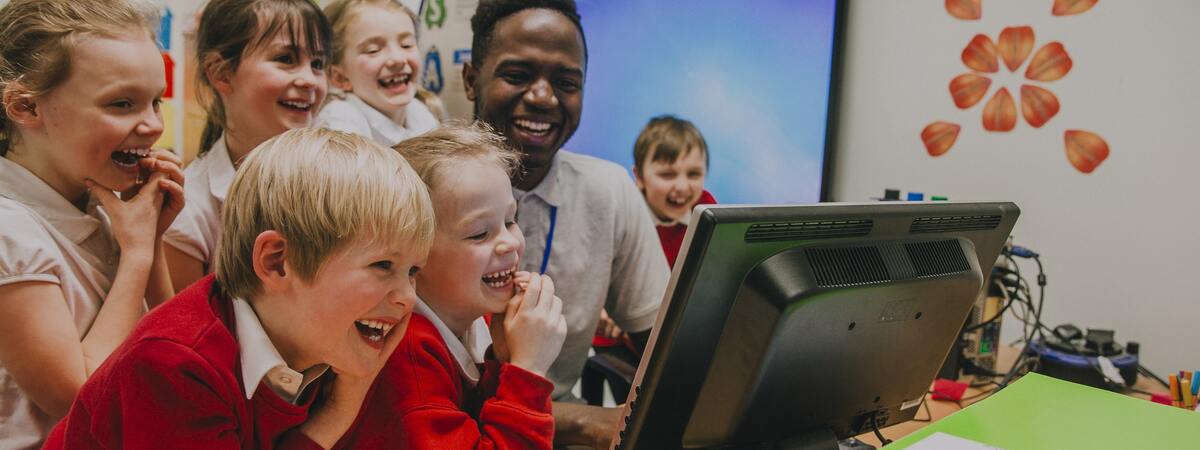In February, the government allocated a £302 million Recovery Premium to English primary and secondary schools, building on the current Pupil Premium scheme. This is designed to mitigate the huge effects of the Covid-19 pandemic on the already gaping attainment gap.
This money will go directly to schools for summer activities, or to spend on ‘evidence-based approaches’ to helping their most disadvantaged pupils from September. This is a wide remit, and there are many different avenues for schools to explore.
From conversations with our thousands of partner schools across the country, we have noted a clear interest in putting money towards targeted, small-group interventions in literacy and numeracy.
This came as no surprise to us. There is broad consensus among educators and educational researchers that small group tuition is effective. Yet schools are often hampered in providing it by staffing limitations.
That’s why we would recommend focusing your Recovery Premium spend on getting the right workforce in place to deliver high-quality, small group interventions to the pupils who need it most.
You might want to consider utilising these 4 types of staff:
1. Teaching Assistants
Teaching assistants have long played a crucial role in schools’ efforts to close their attainment gaps. During the 2021 winter lockdown, over a third of teaching assistantswere running one-to-one or small group catch-up sessions in schools.
Teaching assistants work closely with disadvantaged and SEND pupils, which is why hiring TAs is one of the most common expenditures of the Pupil Premium in primary schools.
Experienced, hard-working TAs will give your permanent teachers the space to teach classes in the knowledge that their most disadvantaged pupils are getting the individualised attention they need.
2. Floating teachers
You might feel that your priority pupils would benefit from focused instruction by their own class teachers. Yet many time-stretched teachers simply do not have the bandwidth to conduct these sessions while also fulfilling their obligations to the rest of the class.
Once upon a time, having a floating teacher on hand to educate different classes on the fly might have seemed a luxury. That seems rather different in the wake of the pandemic’s ongoing disruption to education, first in the form of school closures and now in the huge numbers of pupils and teachers having to self-isolate.
Being able to rely on flexible, floating teachers to cover normal classes frees up your class teachers to focus on delivering targeted interventions that will help close the attainment gap.
3. Key Stage 2 specialist teachers
Learning loss resulting from school closures has hit poorer pupils’ skills in numeracy and literacy particularly hard. Getting pupils up to speed in these two crucial areas will require some concentrated, specialised attention.
This will be particularly acute for children entering Year 7. This cohort will have had lost swathes of both Year 5 and Year 6. They might really benefit from interventions held by teachers with a strong background in teaching Key Stage 2.
Investing the Recovery Premium in finding KS2 specialists will give your pupils the best chance at recovering core skills and delving into the areas of the curriculum they’ve missed.
4. Early career teachers
If affordability is your watchword in how you use your Recovery Premium, newly qualified teachers could be a great option.
Early career teachers come straight out of their training courses with an abundance of fresh, contemporary knowledge about teaching. Their enthusiasm will benefit your pupils in small group sessions while relieving pressure on your permanent staff.
Small group tuition is the key to making the most of your Recovery Premium, but it requires you to have the right staffing arrangements in place. That’s why Protocol Education is standing shoulder to shoulder with schools this summer as they get their workforces in place for September.
Whether you are in search of qualified teachers to run your interventions, floating teachers to free up your current staff, teaching assistants or NQTs, you’ll be able to find them in our huge pool of teaching talent.
To start finding the right staff to close your attainment gap and help your least privileged pupils catch up, get in touch with your local branch.




